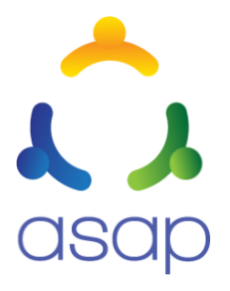Safety Guidelines for Parents
Home » Summer Camps old » For Parents
Parents are the most important influence in a child’s life and it is important for them to speak to their children about the issue of safety and abuse and give them tools to prevent abuse at summer camp. Below are some guidelines for parents. Urge all parents to speak to their children about this topic.
Things to Tell your Child before Camp Season
- Let your child know that he or she can always speak to you, the camp director, head counselor or another trusted member of the camp administration about anything, and that you will always be supportive. You and your child should be notified of the person with whom they should speak if they have any concerns at camp, including but not limited to their safety.
- Teach your child that no one, not even a person in a position of authority or a close relative, has the right to touch him or her in a private area or in a way that feels uncomfortable.
- Teach your child that it is okay to say “No, get away,” even to someone close to them.
- Let your child know that he/she should tell you or a trusted member of camp about any inappropriate touching or behavior he/she is uncomfortable with.
- Teach your child that speaking is not lashon hara or an aveirah.
- Teach your child to ask you about things that may seem strange or confusing.
- Teach your child that they should not listen to anyone who tells them to keep secrets from his parents or camp administration.
- Teach your child that he should not be afraid of threats from anyone who touches him inappropriately or threatens his physical wellbeing or privacy. Let your child know that you and the camp administration will protect him.
- Tell your child that if anyone makes him/her uncomfortable, to speak to you about it.
- Teach your child accurate names for their body parts (including private areas). In a situation of abuse this knowledge will enable them to speak up and explain what happened in a way that will be understood. This is one of the most critical tools for abuse prevention.
General pointers
- Be alert for any changes in your child’s behavior that could signal abuse such as sudden secretiveness, sleeplessness, bedwetting, withdrawal from activities or increased anxiety, inappropriate awareness of sexuality, avoidance of a specific individual for no apparent reason, reluctance to be in camp.
- If your child is a victim of abuse, don’t blame him/her. Listen to them and support them, and consult with a competent professional.
- Open communication with your child is critical. It can significantly reduce the risk of abuse.
- A few days after camp starts, remind your children about personal safety and open communication.
Call your child's camp!
make sure it's safe!
emergency
You know or suspect that a child (under 18) is currently being abused, or is at risk of being abused? act immediately !
If they are in need of emergency care, call 911 or consult with child protective services. You can call anonymously.
Safe Horizons
212-227-3000
RAINN
1-800-656-4673
ACS Office of Advocacy
212-676-9421
Crisis Support for the Jewish Community
SOVRI – 1-888-613-1613
Ohel – 1-800-603-OHEL
Amudim – 646-517-0222
Madraigos – 773-478-6006

